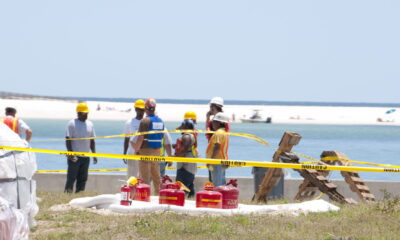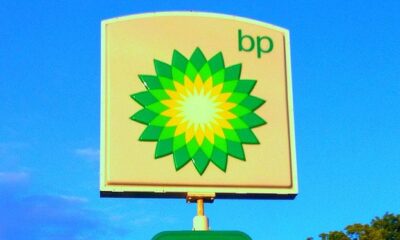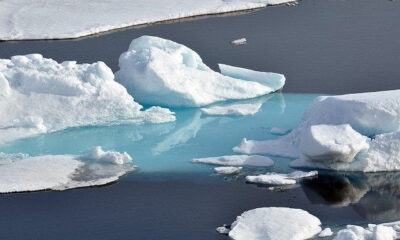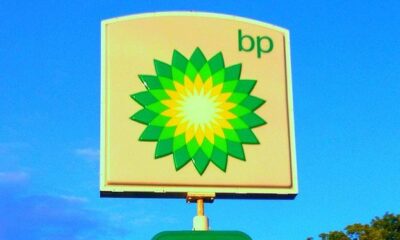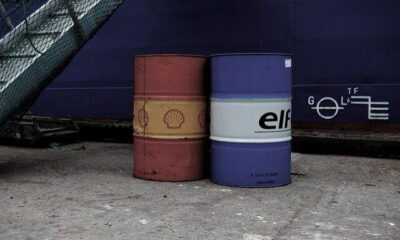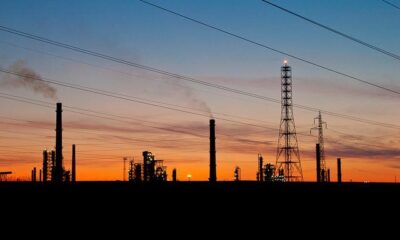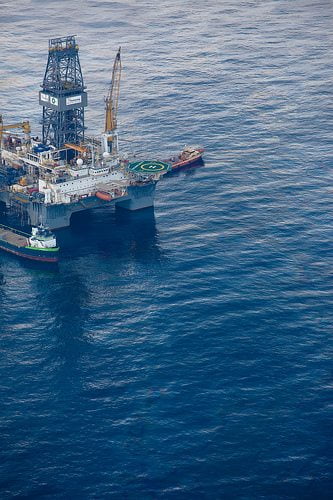

Energy
BP Great Australian Bight oil spill could impact all southern Australia’s coast
An oil spill in the Great Australian Bight from a deep-sea well blowout would be devastating for fisheries and marine life, according to new independent oil spill modelling commissioned by the Wilderness Society.
Oil giant BP has asked Australia’s offshore oil and gas authority, NOPSEMA, for approval to drill four deep-water exploration wells in the Bight. BP was responsible for the world’s biggest oil spill accident, the Deepwater Horizon tragedy in 2010, with 800 million litres of oil spewing into the Gulf of Mexico for 87 days after the company tried drilling an exploration well. NOPSEMA has just one month to address BP’s Bight drilling application.
“An oil spill in the Great Australian Bight from a deep-sea well blowout would be a disaster for fisheries, tourism and marine life,” said Wilderness Society South Australia Director Peter Owen. “The damage would be irreversible.
“A spill would be devastating for South Australia’s $442 million fishing industry and its tourism industries in coastal regions, worth more than $1 billion. The two industries employ more than 10,000 full-time positions. The Bight’s pristine waters are a haven for whales, boasting the world’s most significant southern right whale nursery as well as many humpback, sperm, blue and beak whales. It’s also Australia’s most important sea lion nursery.”
The Wilderness Society commissioned independent ocean scientist Laurent Lebreton to model oil spills scenario in the Great Australian Bight. Lebreton’s work has been endorsed by Flinders University Emeritus Professor of Oceanography, Matthias Tomczak. Lebreton looked at what impact an oil spill like the Gulf of Mexico disaster would have on the Bight as well as three other scenarios. He modelled 1000 spills for summer and winter conditions for the four different scenarios using 20 years of environmental data.
“The model shows that an oil spill in the Great Australian Bight could result in the closure of fisheries in the Bight, Bass Strait and even the Tasman Sea. Even a low-flow oil spill could impact all of southern Australia’s coast, from Western Australia right across to Victoria through Bass Strait and around Tasmania.
“We don’t need a Gulf of Mexico disaster in the Great Australian Bight. A winter spill lasting that long but with just 10 per cent of the flow would most likely impact Kangaroo Island within four months, highly likely enter SA’s Spencer Gulf and Gulf of St Vincent and more than likely reach Victoria and possibly Tasmania.
“In summer it’s highly likely a low-flow spill would reach WA’s Twilight Marine Reserve within four months, posing a serious risk to this important Southern Right Whale calving area.
“A Gulf-scale spill could destroy marine environments in the Bight and oil contamination could even reach as far as Sydney and New Zealand, with a 10 per cent chance of hitting the South Island within six months.
“BP claims an oil spill will last only 35 days even though the Gulf of Mexico spill lasted 87 days. The Montara oil spill off Western Australia in 2009 lasted 74 days. BP’s oil well containment response system will be located on the other side of the world in Houston with other capping stack options potentially coming from Norway or Singapore. There is no established offshore oil and gas industry in South Australia to deal with a disaster.
“The Great Australian Bight waters are more treacherous and more remote than the Gulf of Mexico. Bight waves are 4-6 six times bigger than the waves in the Gulf of Mexico around the time of BP’s disaster. The Bight is also far more windy.”
Under NOPSEMA regulations, BP must consult with stakeholders, giving them “sufficient information” to make an “informed assessment” of the project and its possible consequences, but BP has not revealed important information. BP has not published its oil spill modelling or completed its oil spill emergency plan.
“BP can’t be trusted in the Great Australian Bight,” Mr Owen said. “BP is responsible for the world’s biggest oil spill and then refuses to give the Australian public important information about the risks involved in its deep-sea oil exploration in the Great Australian Bight.
“The government must step in and take back responsibility for Australia’s marine environment.”

